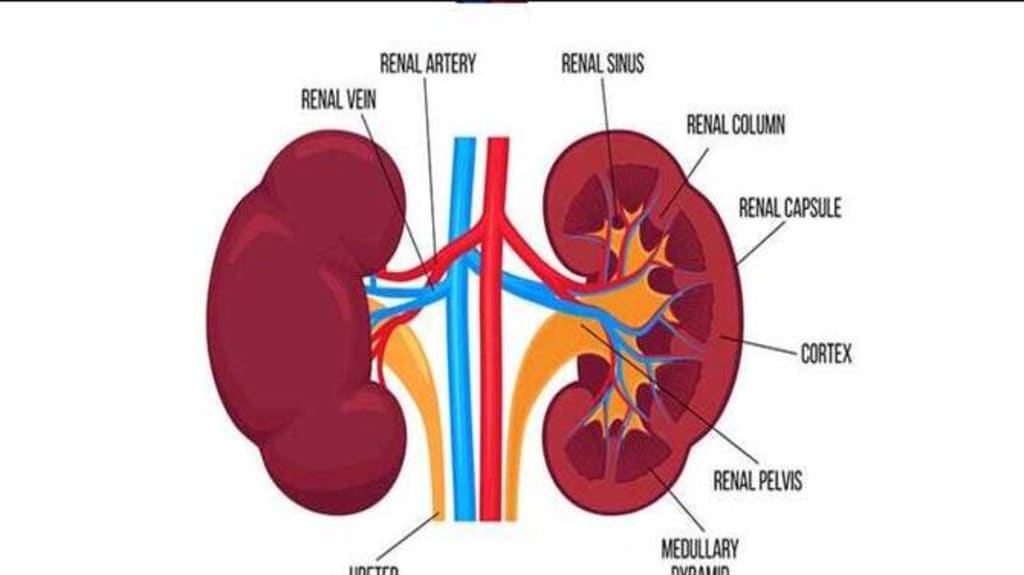Is nephrotic syndrome treatable with Ayurveda?
Nephrotic Syndrome Ayurvedic Treatment

What is Nephrotic Syndrome?
Nephrotic syndrome is a kidney harming group of symptoms that signifies the abnormal functioning of the kidneys. The functioning of the kidneys is crucial for the body as these bean-shaped organs handle a string of functions. These functions are essential as they help in maintaining the whole balance of the body.
The structural and functional units of the kidney contain the filtering parts that work in the execution of Blood filtration, Reabsorption of essential substances. In contrast, the blood is being filtered m and, most importantly, releasing the toxins found in the blood from the body. These three functions are performed to purify the blood accordingly. But kidney disorders like nephrotic syndrome appear if the filtering parts within the kidneys do not function properly.
The cluster of tiny blood vessels filters the blood. These vessels are a part of the glomerulus, and obstructions in the blood filtration occur if there is glomerular damage. The damage in the glomeruli can result in the leakage of essential protein in the urine. As a result, nephrotic syndrome occurs when too much protein slips into the urine.
Therefore, nephrotic syndrome can occur in any age group as various medical conditions target the kidneys and provide irreparable damage to the glomeruli causing the protein to pass in the urine.
What are the chief causes of nephrotic syndrome?
The occurrence of the nephrotic syndrome depends on the kidney disease that damages the ability of these fist-sized organs to filter the blood properly. Causes of nephrotic syndrome are the conditions that cause glomerular damage.
- Focal segmental glomerulosclerosis: This disease is responsible for scarring the tiny blood vessels that filter the blood. These filtering vessels are called glomeruli.
- Membranous nephropathy: It is the thickening of the glomeruli in the kidneys.
- Diabetic kidney disease: Diabetes can cause damage to the filtering blood vessels (glomeruli) in the kidneys.
- Minimal change disease: It is one of the leading causes of nephrotic syndrome in children. The tissues of the kidneys of kidney patients seem normal when they are examined. The causes of this disease and why it affects the kidneys are unknown.
- Systemic lupus erythematosus: It is a chronic inflammatory disease that can result in severity for the kidneys.
- Amyloidosis: The accumulation of the amyloid proteins within the internal organs of the body can cause Amyloidosis. It affects the filtering system of the kidneys as well.
What symptoms occur when you have nephrotic syndrome?
These are the symptoms of nephrotic syndrome.
- Severe swelling (edema) in the feet and ankles.
- Puffiness, especially around your eyes.
- The foamy or bubbly appearance of the urine.
- Unjustified weight gain.
- Fatigue.
- Loss of appetite.
What are the complications of Nephrotic Syndrome?
Various complications arise due to the hindrance in the functioning of the kidneys.
High blood pressure. Nephrotic syndrome can trigger these complications:
- Formation of blood clots.
- Weakness due to poor nutrition.
- High blood pressure or hypertension.
- Chronic kidney disease.
- Acute kidney injury.
- Infections.
- Elevated levels of cholesterol.
- Increased blood triglycerides.
How do doctors identify nephrotic syndrome?
Healthy kidneys are a sign of the healthy functioning of internal organs. These organs filter the blood and eliminate the waste products and excess fluids from the body. If you have any signs and symptoms of nephrotic syndrome, then the doctor will ask you to undergo the following tests:
- Urine tests: It will help in identifying substances like protein and blood in the urine.
- Blood tests: This test will help in determining the rate of functioning of the kidneys.
- Kidney biopsy: A tiny piece of tissue from the kidneys is examined in order to know about the signs and progression of the kidney damage.
Can Ayurveda treat Nephrotic Syndrome?
As Ayurveda contains knowledge regarding each aspect of human anatomy. It states that symptoms of nephrotic syndrome occur due to the obstructed minute body channels called (SROTAS) within kidneys. The vitiation of the three doshas- Vata, pita, and Kapha also has a hand in nephrotic syndrome in the body. The vitiated pitta dosha is responsible for causing nephrotic syndrome. That is why Nephrotic syndrome treatment in Ayurveda focuses on balancing the pitta dosha by using ayurvedic medications. These medications are herbal and do not create side effects on the body. Ayurvedic medications have the definite healing capabilities to reduce the progressive damage in the body. They focus on healing the crucial functions of the body. Changes in the diet and lifestyle are also recommended in order to create positive impacts on the body. Yoga is also recommended as some asanas are healthy for kidneys and help release toxins from the body. These asanas keep the kidneys healthy:
- Mandukasana.
- Shashankasana.
- Vakrasana.
- Yog mudrasana.
- Ardha matsyendrasana.
- Gomukhasana.
- Pawanmuktasana.
- Uttan padasana.
- Naukasana.
- Bhujangasana
Therefore, Nephrotic syndrome treatment in Ayurveda works in the amelioration of a patient's mental and physical well-being. Ayurvedic medications heal the damaged glomeruli and maintain vital functions. In addition, natural healing capabilities wake up after the body consumes kidney-friendly herbs, which are responsible for the enhancement of the health of kidneys.
Nephrotic syndrome treatment in Ayurveda is your solution if you suffer from nephrotic syndrome as it works in reversing the cause of the kidney disorder.






Comments
There are no comments for this story
Be the first to respond and start the conversation.